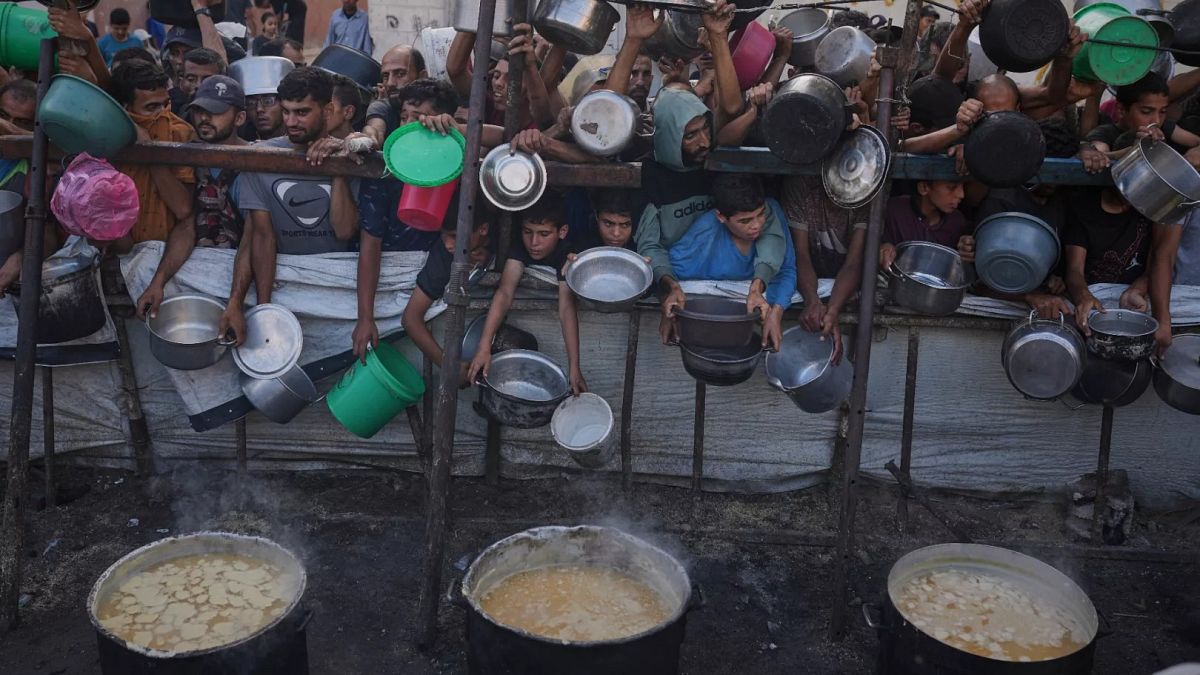

In recent days, a chorus of voices from over 100 humanitarian organizations has echoed across the globe, signifying a growing concern over the alarming humanitarian situation in Gaza. The collective plea, initiated by prominent groups such as Doctors Without Borders, Amnesty International, and Oxfam, sheds light on the severe famine plaguing the region. These groups urgently call for the international community to act decisively to avert further suffering.
The heart of this crisis finds its roots in the challenging conditions that have persisted within Gaza, exacerbated by ongoing geopolitical tensions. The stringent restrictions imposed on the movement of goods and people have led to dire shortages of essential supplies. Aid agencies have reported that their colleagues, along with the individuals and families reliant on their support, are reaching critical levels of starvation. This situation underscores the dangerous intersection of conflict and humanitarian need, where vulnerable populations find themselves disproportionately affected.
Political response has also been swift, with leaders such as Irish Premier Micheál Martin expressing grave concern over these developments. Mr. Martin emphasized the harrowing nature of the situation, reflecting on the disturbing images and reports emerging from the region. His call for an immediate increase in humanitarian aid into Gaza highlights a shared global responsibility to support those in need, bridging divides to prioritize human welfare above all else.
The urgent call to action is further complicated by geopolitical hurdles. Earlier this year, Israel made the decision to restrict the United Nations Relief and Works Agency (UNRWA) from operating within Gaza, citing security concerns. This move has intensified the debate around access and delivery of aid, as it leaves significant voids in the support ecosystem that many Gaza residents depend upon. Humanitarian groups argue that such restrictions contribute to the “chaos and death” manifesting in affected communities.
Beyond diplomatic channels, public demonstrations have mirrored these tensions. Recently, a protest unfolded on the shores of Syros, a Greek island, as demonstrators vocalized their opposition toward Israel’s military operations in Gaza. The peaceful yet impactful demonstration saw more than 300 individuals raise banners and Palestinian flags, compelling an Israeli cruise ship to reroute its journey. This incident underscores the resonance of the Gaza crisis not merely as a regional issue but one that reverberates across international borders, urging global citizens to reflect and respond thoughtfully.
This challenging scenario invites a moment of reflection and understanding, not only for governments and activist groups but also for individuals worldwide. The overwhelming consensus among numerous humanitarian organizations effectively amplifies the urgent need to alleviate the distress faced by Gaza’s civilian population. By invoking empathy and concerted global efforts, there remains a hopeful prospect of paving the path towards restoring peace and dignity to the lives of those so desperately in need of relief.
As this humanitarian crisis unfolds, the world is reminded of the interconnectedness of all nations and peoples. An appeal is made to leaders, policymakers, and communities alike to look beyond the constraints of geopolitical rivalries and prioritize the sanctity of human life. As the call to action grows louder, the potential for a collective breakthrough in delivering aid, fostering understanding, and achieving lasting peace becomes ever more tangible.
Source: {link}
